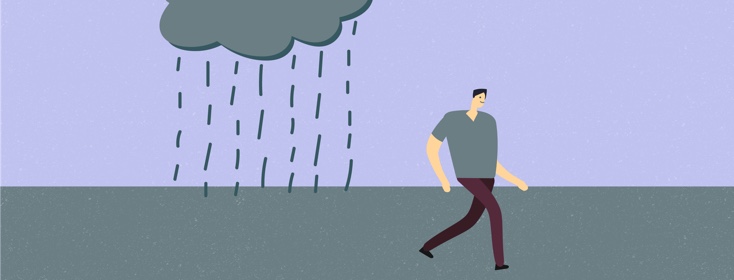When Someone Says the Wrong Thing
It seems like every cancer patient I know can tell the same story. Someone hears that the patient has cancer, and says something insensitive.
Maybe it’s a friend or family member. Maybe it’s a stranger. It’s usually a comment that was not asked for. And it often comes at the worst time.
"The Last Lecture"
The one that always comes to mind for me was from a former student of mine. The student sent me a link to a video called “The Last Lecture.”
The man in the video was a professor. His school had a series called “The Last Lecture,” where professors were told, “If you could only give one more lecture, what would you talk about?” And then they delivered the lecture.
For the professor in the video, it really was his last lecture. He was young and had brain cancer and was given a few months to live. He had small kids.
My former student’s comment with the link? “This reminded me of you.”
A teacher in his 40’s with an incurable cancer and 3 kids? Yes, that did sound a lot like me.
I might not have the details right for that video. I didn’t click the link, and 10 years later, I still haven’t watched it. It put me under a dark cloud for a week.
In those 10 years, I’ve had people tell me all kinds of things that have put me under a dark cloud. Sometimes the cloud disappeared quickly. Sometimes it lasted for days. I’ve been told I was eating the wrong thing (usually as I’m enjoying the thing they are criticizing), and told I should eat the right thing (usually something that will add $50 a week to my grocery bill). I’ve been told I was exercising wrong (my naturally bouncy walk with my dog wasn’t good enough – I needed a special trampoline to bounce on). I was told that the Wikipedia page that said the survival for my cancer was 8-10 years was “troubling” to the person who read it (yeah – that was troubling to me, too. Thanks for the reminder).
And those are just a few of the ones that I heard in the first couple of months after I was diagnosed. And they all just made me more worried than I already was.
The turnaround
Like just about everything related to my cancer, things got better with time. The comments stopped bothering me so much. The dark cloud went away quicker.
I forced myself to rethink what people were saying to me. After all, these were usually people who I knew and loved; they were usually good and kind people. They would never deliberately say something hurtful to another person – especially not someone with cancer. Sadly, that’s not always true. But it was with these folks.
So I did a little exercise in my mind: as insensitive as the comment might be, as much as it might hurt me right now, how can I look at this as positive? What could they have meant that would be helpful, not hurtful?
After all, the people who want me to drink expensive South American berry juice or buy new exercise equipment are looking out for my health. The person who was concerned about survival rates was trying to share my worry. Even my former student was trying to be nice. Apparently, that video showed what a passionate and caring teacher he was (so I am told).
People almost always say the wrong thing when they don’t know what else to say. They see a cancer patient and feel helpless. They say the thing that makes them feel like they are helping, even if it actually does the opposite.
I do my best to keep that in mind.
So what’s your story? What did someone say to you that turned out to be the wrong thing to say?
More importantly, is there some way you can see the good in what they said?

Join the conversation